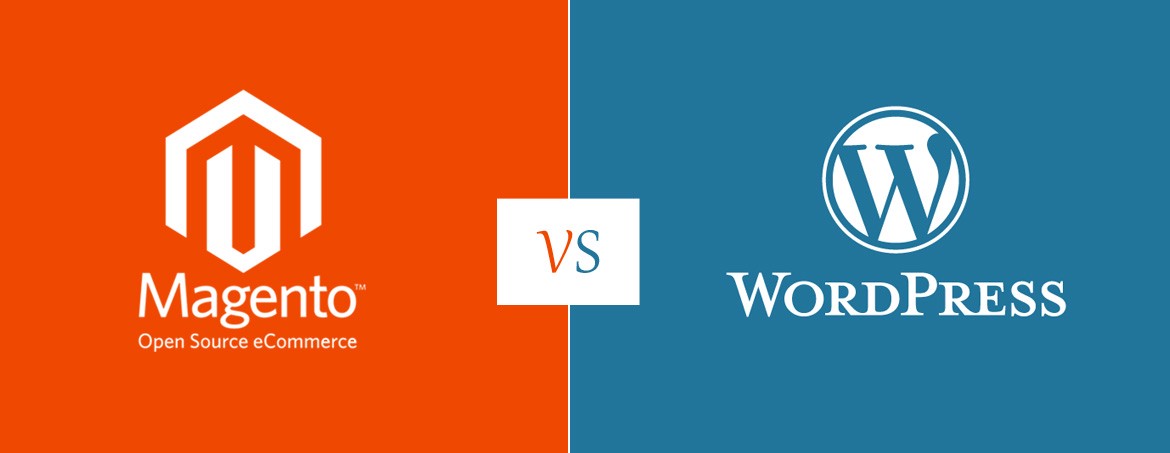As the e-commerce trend grows at a booming pace, there is a concurrent growth on the development front. Today, there is an amazingly huge choice in e-commerce platforms for the beginners as well as the established businesses in the domain. When it comes to the most popular platforms, Magento and WordPress definitely have the edge. However, the choice between the two is a matter of discretion because something that works for one seller may not be good enough for the other. A comprehensive comparison would help if you are considering one of these platforms for building or revamping your online store. Let us compare Magento vs WordPress for ecommerce to get a fair idea about the choice.
Magento- An Overview
An open source technology, Magento caters to millions of online stores ranging from small businesses to some of the world’s most prominent brands. Here are the features that make it an outstanding choice:
- The Community edition of the platform is free to download, yet comes with a number of features that can be used for developing creative e-stores for small and medium-sized businesses. A Magento development company would suggest the Enterprise edition for the bigger businesses with more complex requirements.
- It brings a high-level of customization that enables the merchants to enhance their stores with an impeccable range of features and functionalities. The customization capabilities go a notch higher with the innovative Magento 2 version of the platform.
- However, as you compare Magento vs WordPress, simplicity is where the former would be behind the latter as WordPress does not require technical expertise as Magento does.
- Magento is held in high regard when it comes to security as it has highly-fortified features and extensions. One thing that is to be ensured is to avoid using redundant extensions as they may interfere with the store’s security. It also offers advanced security patches to safeguard the stores.
- The platform is better for larger stores with more products as well as for marketplace websites because of its high-end features. Moreover, it also wins the game when it comes to Magento vs WooCommere/ WordPress speed. Performance is a significant factor when it comes to running larger stores with more products.
WordPress- An Overview
WordPress is an open-source content management system which powers more than 60 million websites across the globe. It is a CMS by core but over the years, it has earned the reputation for being a highly user-friendly e-commerce platform. Let’s explore its features:
- Like Magento, WordPress too is free to use platform which makes it apt for small businesses with a minimalistic budget. At the same time, it is revered by big brands for its unmatched blogging capabilities.
- The basic e-commerce functionalities in this platform can be achieved with the help of various third-party plugins, such as those for payment gateway integration, social media integration, and speed optimization. Besides these, WooCommerce is the most popular e-commerce plugin. For this reason, the comparison sometimes extends to Magento vs WordPress and WooCommerce.
- It is good enough in terms of customization as it comes with plenty of themes and extensions but still does not match Magento in this respect. On the other hand, it has the power of simplicity and does not require developer expertise.
- WordPress offers some basic security features for e-commerce websites, which is a key concern for store owners. A vulnerable third-party plugin can cause security issues for the store. For this reason, it is advisable to research thoroughly and opt only for the updated ones.
- If a business is offering virtual products, then WordPress would be an ideal e-commerce platform for them. The reason is that selling such products do not require the store to have functionalities such as order tracking, shipping, and delivery options. Moreover, it is apt for e-commerce beginners with limited technical knowledge and experience.
Conclusion
When it comes to deciding between Magento vs WordPress 2018, taking a personalized approach helps. Consider your business requirements and goals while choosing the one that suits you. WooCommerce is the best option for beginners as it is easy to use and reasonably priced. On the other hand, Magento is suggested for growing enterprises that need a scalable platform to meet their future needs. It renders perfect e-commerce features for high-end online stores.

